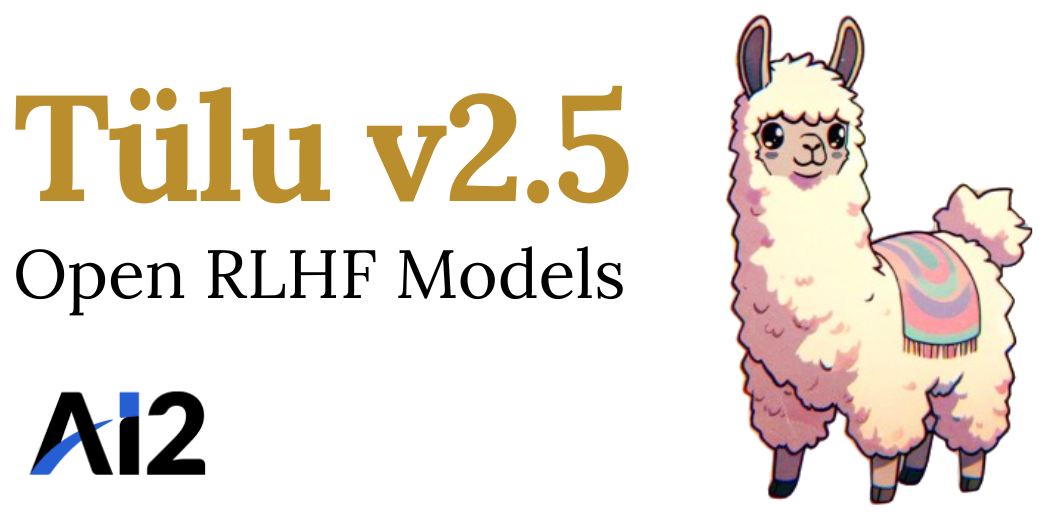model-index:
- name: tulu-v2.5-ppo-13b-uf-mean-70b-mix-rm-value
results: []
datasets:
- allenai/tulu-2.5-preference-data
- allenai/tulu-v2-sft-mixture
language:
- en
base_model: allenai/tulu-v2.5-70b-preference-mix-rm
license: apache-2.0

Model Card for Tulu V2.5 70B RM - Preference mixture Value Model
Tulu is a series of language models that are trained to act as helpful assistants. Tulu V2.5 is a series of models trained using DPO and PPO starting from the Tulu 2 suite. This is a value model produced during the PPO training of this model. We release the value model as it may provide a good starting point for additional research or improved decoding with our released PPO models.
For more details, read the paper: Unpacking DPO and PPO: Disentangling Best Practices for Learning from Preference Feedback.
.Model description
- Model type: One model belonging to a suite of RLHF tuned chat models on a mix of publicly available, synthetic and human-created datasets.
- Language(s) (NLP): English
- License: Apache 2.0.
- Finetuned from model: meta-llama/Llama-2-13b-hf
Model Sources
- Repository: https://github.com/allenai/open-instruct
- Dataset: Prompts used during PPO training can be found here - specifically the
ultrafeedback_mean_aspectssplit. - Model Family: The collection of related models can be found here.
Input Format
The model is trained to use the following format (note the newlines):
<|user|>
Your message here!
<|assistant|>
For best results, format all inputs in this manner. Make sure to include a newline after <|assistant|>, this can affect generation quality quite a bit.
We have included a chat template in the tokenizer implementing this template.
Intended uses & limitations
The model was initially fine-tuned on a filtered and preprocessed of the Tulu V2 mix dataset, which contains a diverse range of human created instructions and synthetic dialogues generated primarily by other LLMs. We then further trained the model with a Jax PPO trainer built on EasyLM on the dataset mentioned above. This model is meant as a research artefact.
Training hyperparameters
The following hyperparameters were used during overall PPO training:
- learning_rate: 1e-06
- total_train_batch_size: 64
- optimizer: Adam with betas=(0.9,0.999) and epsilon=1e-08
- lr_scheduler_type: linear
- lr_scheduler_warmup_ratio: 0.1
- num_epochs: 1.0
- KL penalty coefficient: 0.0325
Citation
If you find Tulu 2.5 is useful in your work, please cite it with:
@misc{ivison2024unpacking,
title={{Unpacking DPO and PPO: Disentangling Best Practices for Learning from Preference Feedback}},
author={{Hamish Ivison and Yizhong Wang and Jiacheng Liu and Ellen Wu and Valentina Pyatkin and Nathan Lambert and Yejin Choi and Noah A. Smith and Hannaneh Hajishirzi}}
year={2024},
archivePrefix={arXiv},
primaryClass={cs.CL}
}